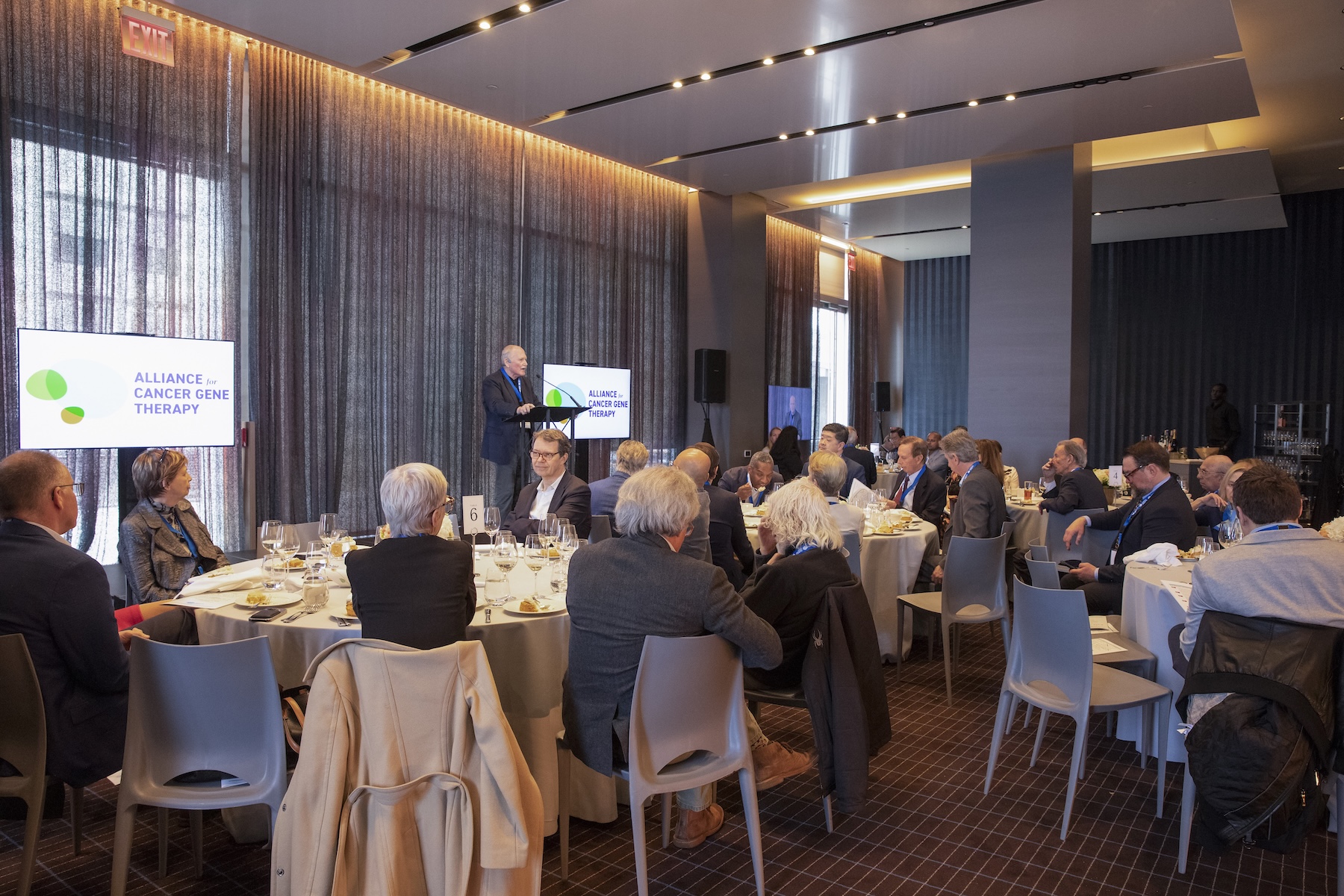
On March 20, Alliance for Cancer Gene Therapy awarded The Edward Netter Leadership Award to Steven A. Rosenberg, MD, PhD, at the ACGT Gala Awards Luncheon, honoring one of the key trailblazers in immunotherapy, including cell and gene therapy, after over 50 years as the Chief of the Surgery Branch at the National Cancer Institute.
Dr. Rosenberg’s research into interleukin-2 led to the first cancer immunotherapy to be approved by the United States Food and Drug Administration, and setting the stage for years of subsequent study into CAR T and TIL therapies for cancer patients.
Over the course of his decades at the National Cancer Institute, Rosenberg has remained on the cutting edge of immunotherapy including cell and gene therapy research. Even after everything he has accomplished, he remains focused on the future and the work he still leads at the National Institute of Health.
“It is a time of some turmoil here at the NIH, but work is proceeding in a vigorous fashion,” Rosenberg said. “I’m particularly delighted to receive this honor from the Netter family. Thank you to Barbara and Edward Netter for selecting me, for supporting this organization and for awarding me this leadership award.”
In his address, Rosenberg walked attendees of the Gala Awards Luncheon through the early discoveries that fueled the development of cell and gene therapy for cancer, and how that momentum continued to build until the first successful treatment of patients.
Rosenberg remains at the forefront of cell and gene therapy research, and even today is leading a clinical trial of the use of T cell receptors in epithelial cancers. He expressed optimism that his continued efforts will result in more discoveries.
“We’re working hard,” Rosenberg said. “I’m going to be continuing for the next four years to lead the surgery branch in these kinds of efforts. I have every expectation that ongoing research is going to lead to further important developments in the development of gene therapies for cancer.”
ACGT is proud to honor Rosenberg with The Edward Netter Leadership Award, signifying his groundbreaking ingenuity, perseverance and commitment to the development of cell and gene therapy for cancer.
Singh shares personal story of journey to cell therapy research
In a keynote address to the Gala Awards Luncheon, ACGT Research Fellow Dr. Sheila Singh, MD, PhD (McMaster University) discussed her personal story of how she came to research cell and gene therapy, in her case centered around pediatric brain cancer.
Singh discussed a particular case from her pediatric neurosurgery residency, where she treated two young boys with “almost identical” medulloblastoma tumors – unable to understand why one patient passed away and one made a full recovery, Singh resolved to study molecular biology and learn more about the inner workings of these tumors.
Singh’s career researching brain tumor biology has led her to a cross-institution collaboration with ACGT Research Fellows Crystal Mackall, MD (Stanford University) and Stephen Gottschalk, MD (St. Jude Children’s Research Hospital) to develop an effective CAR T-cell therapy for pediatric medulloblastoma and ependymoma. Their study received the ACGT – Barbara Netter Collaboration Award of $1.5 million last year.
Now a mother of two, Singh shared that she has come to see herself in more of a mentorship role as her career has progressed, and offered hope that through these efforts, the brain cancer treatment landscape can be fundamentally changed.
“It certainly will not be me who will cure brain cancer, but I have a great hope that one of the people we train will, and with all of the support of the people in this room, I’m certain that this is something I’m as certain as Carl June in that we will only have greater discoveries to come in the future.”



